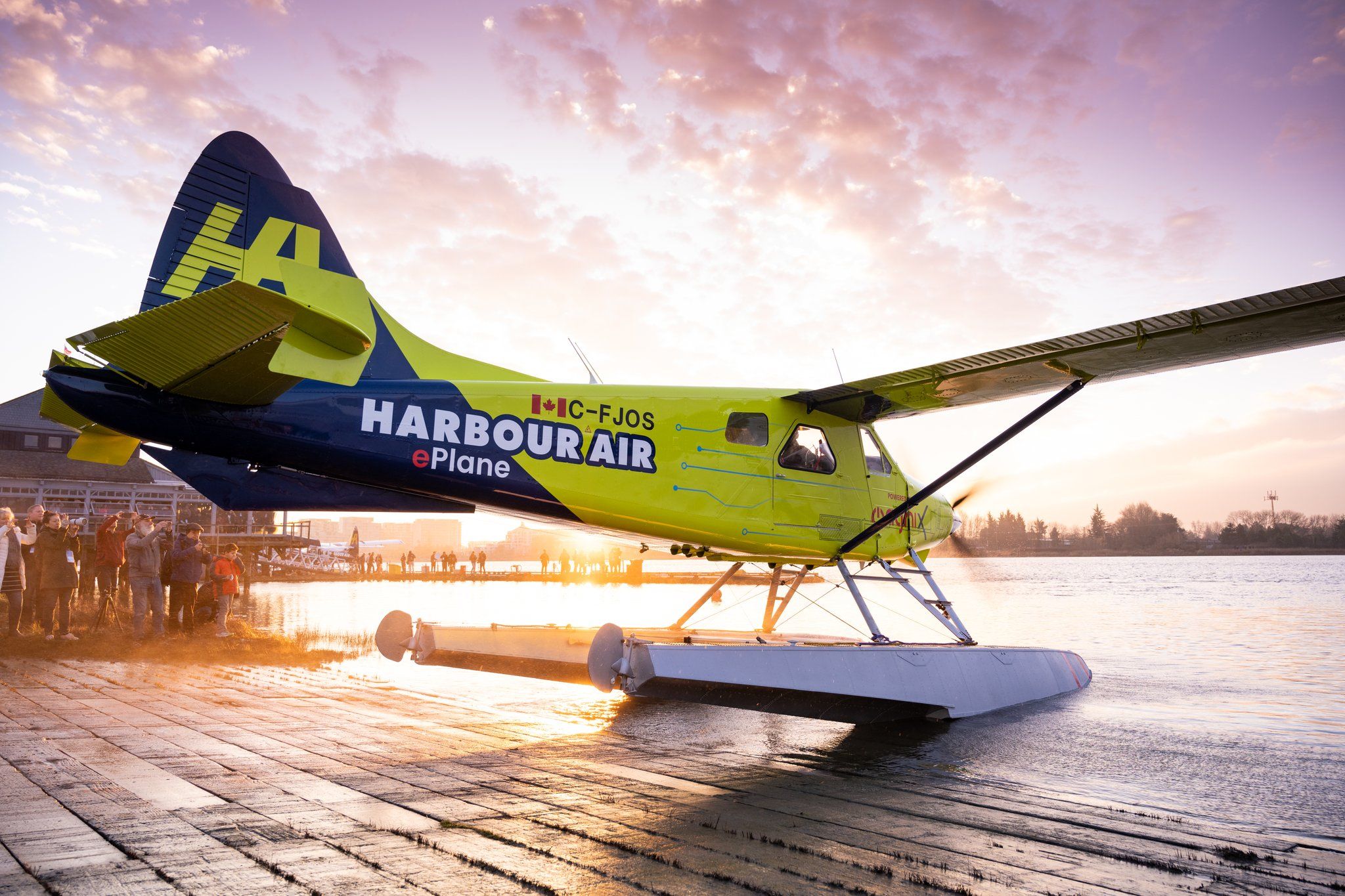Read update
- Commercial flights
Harbour Air has completed its first all-electric point-to-point test flight. The aircraft used was a De Havilland Beaver retrofitted with an electric engine. The historic fight took place on August 17th, and the flight covered 45 miles and took 24 minutes. Upon landing, the aircraft reportedly had plenty of reserve power left.
Electric seaplane
On Wednesday, August 17th, at 08:12 PST, a De Havilland Beaver, a single-engine seaplane, took off out of the Fraser River adjacent to Vancouver International Airport(YVR) in British Columbia, Canada. The plane flew for 24 minutes and covered 45 miles before it splashed down in the Saanich Inlet next to Victoria International Airport(YYJ) at 08:36 PST. This flight was unique because it was Harbour Airs' first all-electric point-to-point flight. This marked a significant milestone for commercial electric flight.
Harbour Air operates an air transit service on these seaplanes. The company intends to utilize this electric variant in the future. It anticipates that the all-electric Beavers will become a critical asset to its operations as it hopes to build the world's first all-electric airline. Harbour Air’s Vice President of Flight Operations and one of the company’s test Pilots, Kory Paul, shared the excitement and pride that the involved parties shared in this accomplishment. Paul stated,
“I am excited to report that this historic flight on the ePlane went exactly as planned.
“Our team as well as the team at magniX and Transport Canada are always closely monitoring the aircraft’s performance and today’s flight further proved the safety and reliability of what we have built.”
The aircraft will be displayed at an open house event at the BC Aviation Museum. The plane will be displayed on August 20th from 10:00 to 16:00 PST. After which, it will fly back to the company's maintenance facility in the Fraser River adjacent to YVR.
Future Travel Experience Global will take place September 6 - 9 in Las Vegas - find out more about cutting-edge aviation technology on the website here.
Aeronautical innovation
In 2019 Harbour Air had the aircraft stripped of its old engine and replaced with a new engine that runs off 100% electricity. To do this, it partnered with magniX, a company leading the electric aviation revolution. The engine was built and fitted in only 10 months. On December 10th, 2019, the airplane flew its first test flight in Richmond, BC. This was the world's first all-electric commercial aircraft to take flight.
Regarding the historical event, the company stated,
"Together with our incredible partners, magniX, we brought together the expertise in aviation, maintenance and electric propulsion systems to begin the process of retrofitting a DHC-2 de Havilland Beaver and converting its engine to a 750-horsepower all-electric motor. In less than 10 months, the team created the blueprint, built the ePlane and successfully flew it!"
Since that historic day, the airline has been testing the aircraft further as it has awaited certification and approval from the FAA and Transport Canada. Having received certification, it was able to make its first point-to-point flight. Hopefully, passengers will soon be able to book flights on the world's first electric airplane.
UPDATE: 2022/08/19 13:13 EST BY RILEY PICKETT
Commercial flights
Harbour Air has informed Simple Flying that it plans to carry passengers for profit by summer 2024.
What do you think of this aeronautical advancement? Let us know in the comments below.


